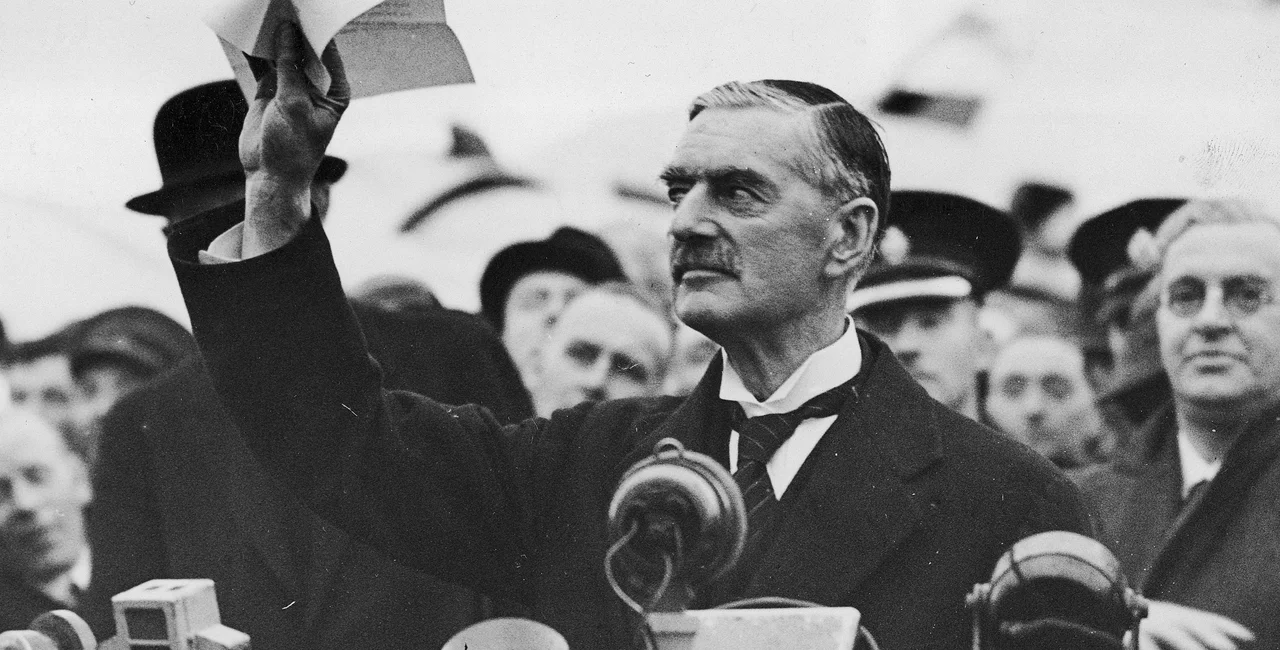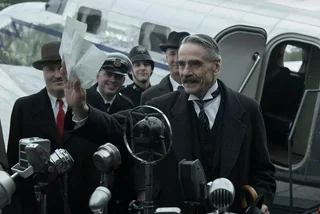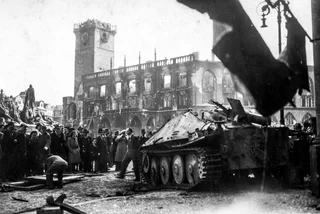In the early hours of Sept. 30, 1938, representatives of Britain, France, and Italy tried to appease Nazi dictator Adolf Hitler as the storm clouds of war gathered in Europe. The three countries agreed with Hitler that Czechoslovakia would give up control of the Sudetenland, the border regions where 3 million ethnic Germans lived.
The Munich Agreement was meant to ensure peace in Europe and keep Hitler from making further territorial demands. As history shows, both endeavors failed, and World War II broke out 11 months later.
PARTNER ARTICLE
Representatives of Czechoslovakia were not part of the negotiations, which took place at a building called Führerbau (now a music and theater school). Representatives of the Soviet Union, which had treaties to support Czechoslovakia, could not participate either.
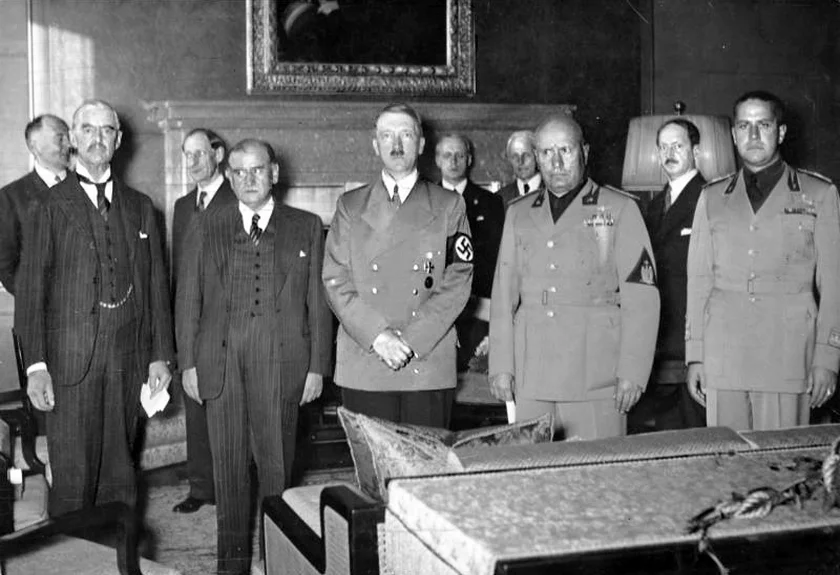
While the deal is called the Munich Agreement in English, the Czech name for it is more blunt: the Munich Betrayal (Mnichovská zrada).
The idea that the borderlands should be split off had its roots in the establishment of the Sudeten German Party (SdP) in 1933, a right-wing populist political group that was hostile to Czech rule. The party had overwhelming support in Czechoslovak areas where Germans were the majority.
SdP leader Konrad Henlein met with Hitler in March 1938, and a month later Henlein put forward a list of demands calling in part for German autonomy.
Friction between Germany and Czechoslovakia continued to build until September. In a speech at Nuremberg on Sept. 12, Hitler condemned the Czechoslovak government for allegedly persecuting the German minority, leading to violent incidents in Czechoslovakia the next day.
Britain’s Prime Minister Neville Chamberlain made little progress after a meeting Hitler on Sept. 15, which was meant to ensure that peace would be maintained. The following day, representatives of France and Britain urged Czechoslovakia to cede areas that had a majority German population, but Czechoslovak officials rejected the idea.
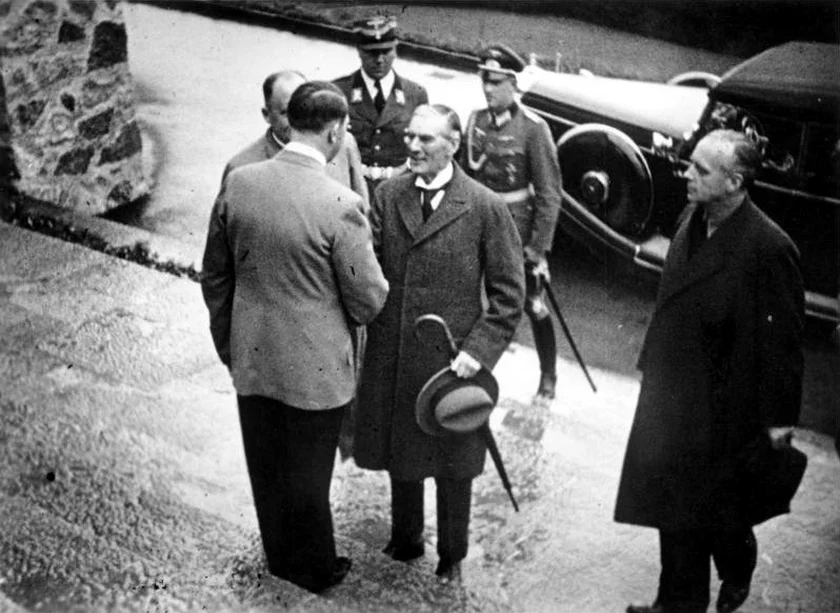
On Sept. 17, Hitler ordered the creation of a uniformed paramilitary group in the Sudetenland called Sudetendeutsches Freikorps. Immediately following this, the armed group attacked customs houses in several border communities. In total, some 100 Czechs and Slovaks were killed, and 2,000 were relocated.
Czechoslovakia had hoped for support from France and Britain in the face of the aggression, based on treaties signed after World War I, but as the last weeks of September 1938 rolled by, it became more and more clear that no help was coming.
Hitler used the violence in the border regions to claim that Czechs and Slovaks were killing Germans, he kept increasing his demands for Czechoslovak territories, calling for the complete dissolution of the country. He set a deadline of Sept. 28, saying that if he did not get the Sudetenland he would take it by force.
On Sept. 27, Chamberlain made Britain’s position clear: “How horrible, fantastic, incredible it is that we should be digging trenches and trying on gas masks here because of a quarrel in a far-away country between people of whom we know nothing,” he said.
Rapid negotiations on Sept. 28 led to a 24-hour extension of Hitler’s deadline. Chamberlain, French Prime Minister Édouard Daladier and Italian Prime Minister Benito Mussolini met with Hitler on Sept. 29 in a bid to reach a resolution that would avoid war. A deal was reached late at night but wasn’t signed until 1:30 a.m. the next day.
The agreement stated that Germany would occupy the Sudetenland by Oct. 10 and further territorial disputes would be settled by international arbitration. Czechoslovakia was informed of the outcome by representatives of France and Britain and told that no help would come in the face of armed invasion. The Czechoslovak government saw little choice but to accept the decision.
Later on Sept. 30, Chamberlain got Hitler to sign a statement acknowledging the desire of Germany and Britain never to go to war again. Chamberlain waved the paper at the airport on his arrival back in London, while saying the now-famous line about securing “peace for our time.”
The agreement was not popular with Czechs and Slovaks, who were not pleased that they were left out of discussions about their own fate. “About us, without us” became a popular slogan when talking about the pact. The agreement not only reduced Czechoslovakia’s land area and population but also reduced its industrial capacity as the ceded areas were the most industrialized.
In France and Britain, the reception was more positive. Even the New York Times tried to put a positive spin on it, saying Hitler got slightly less than what he demanded.
Czechoslovak President Edvard Beneš resigned on Oct. 5, 1938. Conservative lawyer Emil Hácha on Nov. 30, 1938, became president of the short-lived Second Czechoslovak Republic. During that time, several concessions were made to further appease Nazi Germany: the Communist Party was banned, Jewish teachers in German educational institutes were suspended, and a law was passed to allow the state to take over Jewish companies.
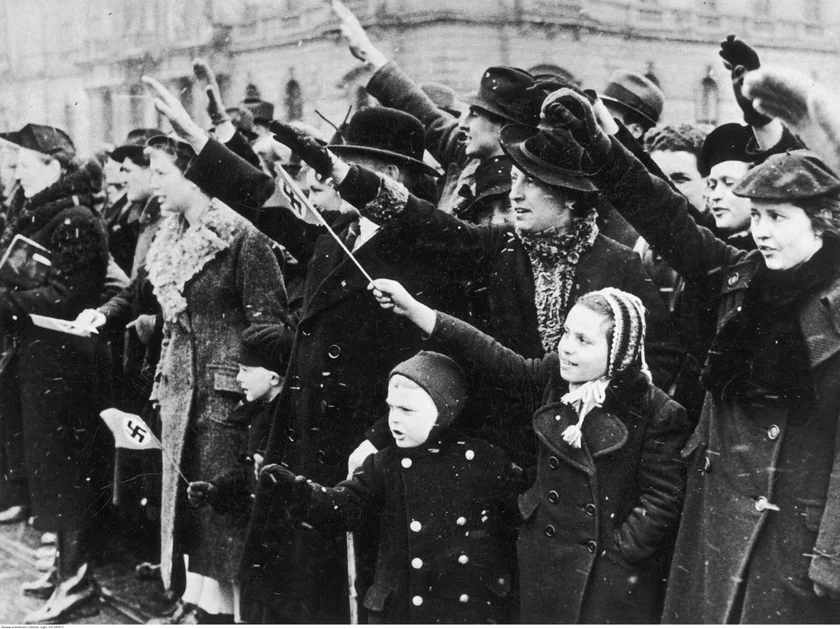
Slovakia split from Czechoslovakia on March 14, 1939. Hácha went to Berlin to meet Hitler to discuss the situation, but was told that the German invasion of Bohemia and Moravia was already underway, and Prague would be destroyed if there was any resistance.
After World War II broke out, both Britain, France, and Italy formally backed away from the Munich Agreement. Prime Minister Winston Churchill, who replaced Chamberlain, informed Beneš, who was leading a Czechoslovak government in exile, in November 1940 that the agreement was considered dead. France’s Charles de Gaulle called it null and void in September 1942, and Italy repudiated it after the fall of Mussolini.
The Sudetenland was returned to a restored Czechoslovakia at the end of World War II. In a move that is still controversial, ethnic Germans were expelled under the Beneš Decrees and their property was confiscated. Disputes over the return of real estate continue to this day.












 Reading time: 4 minutes
Reading time: 4 minutes 